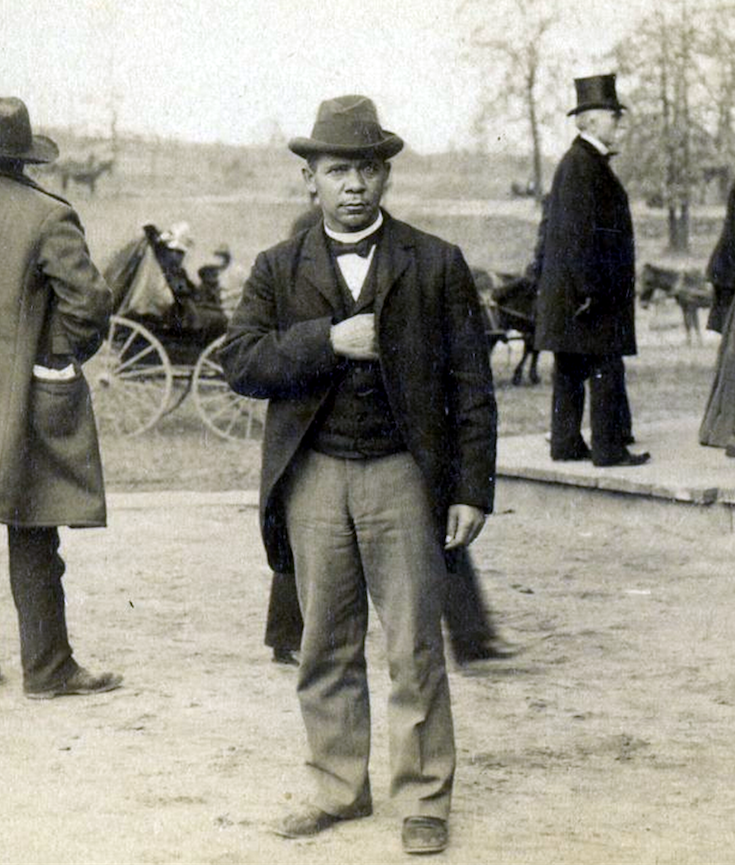His decision shocked the nation since dining at the same table implied social equality.
But who was Booker T. Washington and why would President Theodore Roosevelt invite him to a dinner at the White House?
[mc4wp_form id=”6042″]
Booker T. Washington was born into slavery on April 5, 1856, on the plantation of James Burroughs in southwest Virginia.
His family gained freedom under the Emancipation Proclamation and moved to West Virginia, where Booker attended school for the first time and learned how to read.


The Emancipation Proclamation was a presidential proclamation and executive order issued by President Abraham Lincoln on January 1, 1863. It purported to change the federal legal status of more than 3 million enslaved people in the designated areas of the South from “slave” to “free”, although its immediate effect was less. It had the practical effect that as soon as a slave escaped the control of the Confederate government, by running away or through advances of federal troops, the slave became legally free. Eventually it reached and liberated all of the designated slaves. It was issued as a war measure during the American Civil War, directed to all of the areas in rebellion and all segments of the executive branch (including the Army and Navy) of the United States.
It proclaimed the freedom of slaves in ten states. Because it was issued under the President’s authority to suppress rebellion (war powers), it necessarily excluded areas not in rebellion – it applied to more than 3 million of the 4 million slaves at the time. The Proclamation was based on the president’s constitutional authority as commander in chief of the armed forces; it was not a law passed by Congress. The Proclamation was issued in January 1863 after U.S government issued a series of warnings in the summer of 1862 under the Second Confiscation Act, allowing Southern Confederate supporters 60 days to surrender, or face confiscation of land and slaves. The Proclamation also ordered that suitable persons among those freed could be enrolled into the paid service of United States’ forces, and ordered the Union Army (and all segments of the Executive branch) to “recognize and maintain the freedom of” the ex-slaves. The Proclamation did not compensate the owners, did not outlaw slavery, and did not grant citizenship to the ex-slaves (called freedmen). It made the eradication of slavery an explicit war goal, in addition to the goal of reuniting the Union. (Wikipedia)


You must be logged in to post a comment.